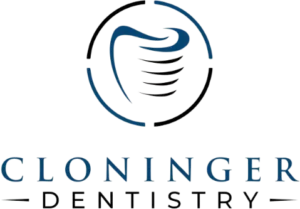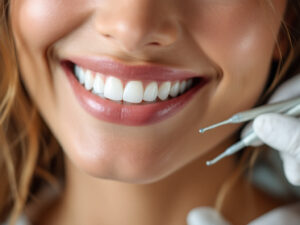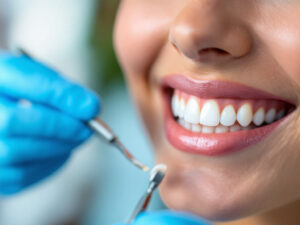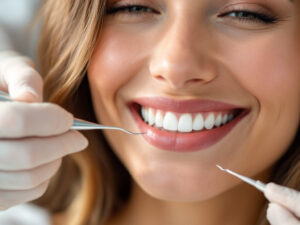When you make dental hygiene maintenance a priority, you protect more than your smile. Daily oral care routines combined with professional checkups form the foundation of preventive dentistry. By keeping up with consistent brushing, flossing, and visits to your gentle family dentist, you reduce the risk of cavities, gum disease, and other health concerns that can affect your whole body.
Understand dental hygiene maintenance
Dental hygiene maintenance means a blend of at-home practices and regular professional care. At home, you remove plaque—the sticky film of bacteria that begins forming on teeth within 20 minutes of eating—and prevent it from hardening into tartar within a day or two [1]. Professionally, you receive thorough cleanings and screenings that keep small issues from turning into major problems.
Key components of maintenance:
- Daily brushing and flossing to disrupt plaque formation
- Routine dental exams to catch early signs of decay or gum disease
- Professional cleanings to remove tartar below the gum line
- Oral cancer screenings to identify abnormal tissue changes
Proper oral care supports overall health. Studies link gum inflammation to heart disease, stroke, and even Alzheimer’s disease, as oral bacteria can enter the bloodstream and trigger systemic effects [2]. By maintaining your oral environment, you lower risks far beyond cavities.
Schedule regular dental visits
Regular checkups create a safety net for your smile. The Centers for Disease Control and Prevention recommend at least one dental visit per year, while many practices encourage exams every six months for optimal protection [1]. Your visit may include a new patient dental exam or a routine dental checkup, depending on your history.
Benefits of biannual checkups
Visiting your dentist twice a year offers:
- Early detection of cavities and gum disease before symptoms appear
- Professional tartar removal that at-home care can’t achieve
- A comprehensive dental exam, including X-rays to monitor hidden areas
- Oral cancer screening by an oral cancer screening dentist
This proactive approach often prevents more complicated, costly treatments down the road.
Tailor your visit frequency
Your individual needs may call for more frequent visits. You might benefit from exams every 3–4 months if you:
- Have a history of periodontal disease [3]
- Live with diabetes or a weakened immune system
- Accumulate plaque rapidly or tend to develop cavities
- Are undergoing orthodontic treatment
In these cases, a periodontal checkup dentist can work with you and your insurance accepted dentist to create a schedule that keeps your oral health on track.
Practice daily oral care
At-home hygiene is the first line of defense. By following evidence-based techniques, you remove plaque and food particles effectively, support gum health, and reduce the need for invasive treatments.
Effective brushing technique
- Brush at least twice a day for two minutes with a soft-bristled brush [4].
- Hold the brush at a 45-degree angle toward your gum line and use gentle, circular motions.
- Divide your mouth into quadrants and spend 30 seconds on each quadrant. Timers or smartphone apps can help you stay on track.
Electric toothbrushes—sonic or oscillating—often remove more plaque, especially in hard-to-reach areas, making them ideal if you have limited dexterity or braces [5].
Floss and interdental cleaning
Flossing once a day removes plaque between teeth and below the gum line where toothbrushes can’t reach [6]. If traditional floss is difficult, consider:
- Dental picks or pre-threaded flossers
- Interdental brushes or woodsticks
- Water irrigators
Choose a method you’ll use consistently to maintain healthy gums.
Use mouthwash and rinses
Therapeutic mouthwashes containing fluoride or antimicrobial agents can:
- Reduce plaque and gingivitis
- Strengthen enamel
- Freshen breath
Use mouthwash after brushing and flossing to rinse away lingering debris and bacteria.
Adopt healthy dietary habits
What you eat and drink plays a crucial role in dental hygiene maintenance. Acids and sugars in your diet feed harmful oral bacteria and erode enamel over time.
Foods that protect enamel
Include these nutrient-rich choices:
- Dairy products (milk, cheese, yogurt) for calcium and phosphorus
- Fresh fruits and vegetables for natural cleansing and vitamins
- Lean proteins (chicken, fish, eggs) for tissue repair
- Sugarless gum with xylitol to stimulate saliva and inhibit decay [7]
Limit sugar consumption
- Reduce intake of added sugars (sodas, candies, fruit juices), which drive enamel demineralization.
- Avoid sticky foods like gummy candy and dried fruit that cling to teeth [8].
- When possible, rinse with water after meals or chew sugarless gum if brushing isn’t immediate.
Staying hydrated with fluoridated tap water also helps wash away food particles and supports enamel health.
Leverage preventive treatments
Professional interventions strengthen your at-home efforts and shield you from future problems.
Schedule professional cleanings
A professional teeth cleaning removes hardened tartar and targets areas that are difficult to reach on your own. During these visits, your hygienist will:
- Scale away calculus
- Polish teeth to remove surface stains
- Rinse and floss for deep cleaning
These cleanings are vital for preventing gingivitis and periodontitis.
Add fluoride and sealants
- Fluoride treatments remineralize enamel and reduce decay [9].
- Dental sealants protect deep grooves on molars by creating a barrier against bacteria [10].
Both options offer long-lasting defense against cavities, especially for children and teens.
Screen for oral cancer
Early detection of oral cancer dramatically improves outcomes. Ask your dentist about an oral cancer screening during routine exams. This quick evaluation checks for abnormal lesions or tissue changes in your mouth, head, and neck.
Monitor and manage risks
Even with excellent care, you need to watch for warning signs and address underlying health conditions.
Spot early warning signs
Be alert for:
- Persistent bad breath or a bad taste [11]
- Bleeding or swollen gums
- Loose or shifting teeth
- White or red patches in your mouth
If you notice any of these, schedule a gum disease evaluation promptly to prevent progression.
Manage coexisting conditions
Certain health issues influence oral health:
- Diabetes can worsen periodontal disease and complicate blood sugar control [11].
- Heart disease risk rises with gum inflammation [2].
- Pregnancy can increase gum sensitivity and risk of preterm birth if periodontal issues go untreated [12].
Work with a periodontal checkup dentist and your medical team to coordinate care.
Choose a preventive care plan
A tailored plan helps you maintain consistency, comfort, and coverage for your entire family.
Ensure coverage and continuity
Look for a practice that accepts your insurance and offers flexible payment options. An insurance accepted dentist can guide you through your benefits to maximize savings. Discuss a preventive dental care plan that outlines:
- Frequency of exams and cleanings
- Recommended sealant or fluoride treatments
- Any additional specialty visits
Find family-friendly services
Cloninger Dentistry is a family dental care clinic designed for all ages. You’ll enjoy:
- A gentle family dentist skilled in working with children and adults
- Dedicated children’s dentistry preventive care in a welcoming environment
- Comprehensive options from a checkup and x-ray combo to advanced screenings
Comfortable care settings and continuity with the same team build trust and encourage lifelong oral health habits.
Conclusion
Dental hygiene maintenance combines daily routines, professional treatments, lifestyle choices, and risk management to keep your smile healthy for life. By partnering with Cloninger Dentistry’s preventive and family dental services, you benefit from comprehensive care, seamless coverage, and an experienced team dedicated to your comfort. Schedule your next visit and take the proactive steps that will preserve your oral health—and overall well-being—for years to come.
References
- (Penn Dental Medicine)
- (AAOSH)
- (gum disease evaluation)
- (ADA)
- (Apple Valley Dental Group)
- (NIDCR)
- (NCBI Bookshelf)
- (Donahue Dental)
- (fluoride treatment dentistry)
- (dental sealants service)
- (Cleveland Clinic)
- (Dental Health Foundation)










